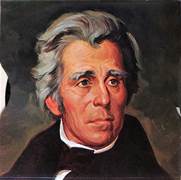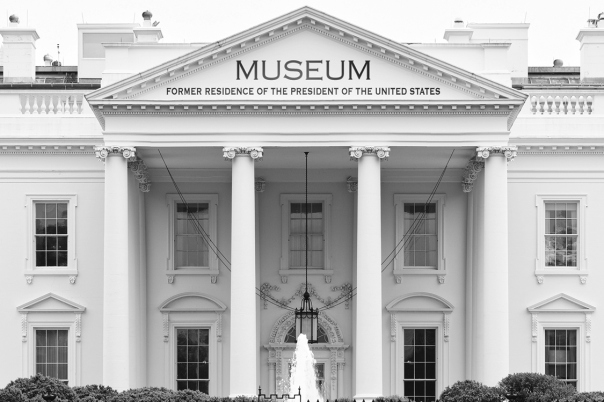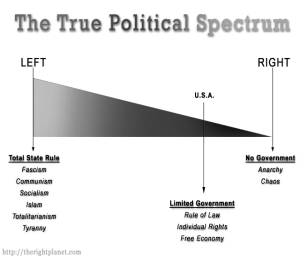Category Archives: politics
Honoring ‘Old Hickory’ – President Andrew Jackson
 One of my favorite US Presidents is Andrew Jackson – a man who understood the dangers of centralized banking and stood up courageously for the everyday working man and woman. Possibly due to his own humble and tragic childhood, Jackson was a champion for the rights of all individuals to live in freedom with plenty of opportunities to succeed.
One of my favorite US Presidents is Andrew Jackson – a man who understood the dangers of centralized banking and stood up courageously for the everyday working man and woman. Possibly due to his own humble and tragic childhood, Jackson was a champion for the rights of all individuals to live in freedom with plenty of opportunities to succeed.
That is why he (along with Abraham Lincoln) is featured prominently in Steps One and Two of my book. Nathan Rothschild tells the story of President Andrew Jackson during his exam answer in Mr. Bauer’s history class:
“In the 19th century two American presidents, Andrew Jackson and Abraham Lincoln fought back and won against the centralized banking system of their time, The Bank of the United States. Jackson was a war hero. He defeated the British Army in the Battle of New Orleans during the War of 1812. The troops under his command nicknamed him ‘Old Hickory’ because he was ‘as tough as hickory.’ He respected the people’s will because of his own humble start in life. When he was a boy, he’d been a prisoner of war during the American Revolution until his widowed mother rescued him. Then she died and left him an orphan.
“Jackson always stood up for the rights of everyday working people. This helped him win the popular vote and an electoral majority during the Election of 1828. He believed the Bank of the United States gave too much power over the American economy to private bankers. That became the main issue of the 1832 Election. Jackson won re-election while he fought with Nicholas Biddle, the country’s first central banker. People called him ‘Czar Nicholas.’ Biddle made life very hard for small businesses and individuals by raising interest rates and controlling the money supply. “But President Andrew Jackson won. He destroyed the US Bank and paid off the national debt. It’s part of his unique legacy because he’s the only president in the history of the United States to do it. It is kind of funny that even though Jackson always liked gold and not paper money, he still ended up on the American twenty-dollar bill.”
Then later in Step Two, Advanced Soul and former US President Andrew Jackson applauds Israeli Prime Minister Eyal Grad for the creation of the Citizens Lottery System and offers this brief history lesson that includes an important point about the nature of humanity:
“Mr. Grad, as you may already know during my time on earth I was known as the first working-class president,” Jackson continued. “As an orphaned young man who raised himself out of poverty after my experience as a POW during the American Revolution, the plight of the common man was always foremost on my mind. Oh yes, I did some things I’m not proud of during my time on earth, including killing thousands of native Americans at the Battle of Horseshoe Bend. While in human form, we’re capable of exceptional acts of heroism and accomplishment, and regrettable acts of barbarism and cruelty. I was certainly no exception to this rule when I inhabited an earthly body known as Andrew Jackson, seventh President of the United States. “After I defeated the British in the Battle of New Orleans, many Americans called me ‘The Second George Washington’ and ‘The Hero.’ It wasn’t long before I heeded the call to run for the highest office in the land because it was my opportunity to take a stand against the centralized banking system. Centralized banks controlled the circulation and availability of money to the detriment of decent, everyday working people. As a relentless champion for common folks I was determined to put an end to this money monopoly.
“When I decided to run for President I knew I had to base my platform on revoking the charter of the Bank of the United States because it had too much power over the American economy through private bankers. We’d seen this throughout history with centralized banks like the Bank of England and the money traders of Biblical and Roman times. To a humble frontiersman like me, the Bank of the United States—with its board of directors tied to industry and manufacturing—was naturally biased in favor of the urban and industrial northern states. It was also unconstitutional and antithetical to the principles of individual liberty and equality.”
I highly recommend watching this excellent documentary on the exceptional life of President Andrew Jackson. There’s much more in the novel about him and his accomplishments on earth, so this is just a small taste. In a future post I will discuss another great President – Abraham Lincoln.
Welcome to the White House Museum, circa 2412
In my post No More Political Dynasties, I explained why all countries of the world — not just the United States — must abandon the idea of centralized power, especially when it’s concentrated and passed down through the same families. Whether it’s Kennedy, Bush, or Clinton the entitlement mentality of members of elite political families is a threat to individual liberty.
That’s why in Step Three of my book, I wrote a scene in which Mr. Bauer and his students visit Washington D.C. and the White House Museum – Former Residence of the President of the United States. Their tour guide has a very familiar name, too:
“Hello everyone, my name is Piper Palin and I’ll be your tour guide for the White House Museum today,” a lovely young woman of about 25 years announced with a smile. She had long, shiny, chestnut-colored hair, hazel eyes and a genuine disposition as she greeted the Arusha travelers outside of the building that once housed US Presidents and their families during the End Days. Although it was a hot, humid Washington D.C. morning Piper’s crisp, neat appearance was completely unaffected. Kissinger looked at her in amazement as he wiped his sweaty brow with his handkerchief and felt the moisture beginning to saturate his shirt. He couldn’t wait to get inside the air-conditioned building.
Once inside the cool building Piper led them through the Oval Office, various parlors and eventually the Rose Garden, pointing out the historical significance of each attraction. Large framed photos of US Presidents from George Washington to Sarah Palin still graced the walls but Piper had been quick to point out that her great-great grandmother was the last one to have had the honor—and only because of intense pressure from everyday citizens who were thrilled to have elected her the first female President of the United States. Palin’s administration had initiated the 400-year tradition of presidents and their cabinets living in their own humble homes, working in modest offices and driving their own cars to and from work.
“Wow, she’s even more beautiful than her internet pictures,” Hillary gasped as she and Debbie stood staring at the painting.
“Beauty, brains and accomplishment—no wonder so many people liked her!”
“Yes, and what a great leader too,” Debbie agreed. “When the rest of the world had abandoned Israel, she stood by Eyal Grad. I can see why she was one of the Salvation Twelve.”
Nearby, George W. Bush took in the sight of his ancestor’s portrait with utter amazement. He couldn’t believe he looked exactly like the 43rd President of the United States—except for his dark black skin, of course. Even though he’d seen pictures of G.W. Bush on the internet, the larger-than-life portrait showcased their shared facial features with shocking clarity. For the longest time all he could do was stare at it. Standing in the Oval Office, young Bill Clinton thought back to the Monica Lewinsky scandal that had nearly ruined his ancestor’s presidency.
Although he felt shame for President William Jefferson Clinton’s lack of decorum and judgment in luring a much younger woman into the people’s house for sex, he was thankful to have chosen the same kind of family libido for this incarnation. As he strolled around the room it occurred to him that perhaps he could become a filmmaker like Spielberg—except he would produce pornography films for Sin City in Arusha. Maybe someday he could even become an owner of a porno production company, too. This would be a safe way for him to satisfy his sexual urges without hurting anyone else and it would certainly be in line with his Life Purpose Class results which had pointed him toward a career in the arts. Bill smiled as he visualized his success.
In this new reality called Salvation Time, all politicians live in their own homes (which they pay for with their own money), drive themselves to work in their own cars (which they also pay for themselves) and do the people’s business in modest offices. Governments are streamlined and operate efficiently on a very tight budget because all of the material trappings of power have been stripped away. This enables everyday people to freely pursue their goals and thrive personally and professionally in a system of positive capitalism.
What do you think? Do you agree we should eliminate political dynasties? How do you feel about turning the White House into a museum?
Salvation Days: No More Political Dynasties!
 I’ve covered some of the spirituality of my book in my posts about reincarnation and Salvation Time cinema. There will be much more to come on this topic but since everything is connected I wanted to take some time to discuss another very important theme — one that is also critical to bringing Salvation to earth. And that is the elimination of political dynasties.
I’ve covered some of the spirituality of my book in my posts about reincarnation and Salvation Time cinema. There will be much more to come on this topic but since everything is connected I wanted to take some time to discuss another very important theme — one that is also critical to bringing Salvation to earth. And that is the elimination of political dynasties.
This is not about the false choice between Republicans and Democrats. It’s about centralized control that seeks to dominate everyday people and make their lives miserable. In the United States, that has become the permanent political class in Washington, D.C. where members of both major parties enrich themselves at the expense of entrepreneurs, producers and workers.
But this centralized control by powerful elites has been a feature of history since the dawn of civilization. So whether we’re talking about a monarchy, a dictator, a Nazi, a communist or entrenched politicians, it all leads back to negative character traits and the animal nature of man controlling his spiritual nature — to the detriment of good people.
There are many characters in the book that speak to this problem, beginning with some members of the Arusha Race Unity High School Class of 2412: Bill Clinton, Hillary Rodham, George W. Bush, Jacques Chirac, Henry Kissinger, Golda Meir and Mahmoud Ahmadinejad.
But in this post I’d like to focus on the United States. Just as with the reincarnation topic I’m sure my political beliefs will offend many. Please keep in mind my novel is based on solid research and the imperative to stop repeating history. When you read it, you’ll see that I’m equally as tough on George W. Bush as I am on Bill Clinton. At the same time humor is very important in making these points so you’ll find some laughs interspersed among the serious stuff. It’s all about entertaining while informing.
Here’s a snippet of dialogue between the student George W. Bush and Mr. Bauer in Step One, which explains the fallacy of “fossil fuels” and how energy is produced in Salvation Time:
“Tell us about the role of hydrocarbon and the petroleum industry in the End Days, versus their role in Salvation Days.”
“Ahh, well in the…ahh…End Days, there was….uh…major propaganda put out by the oil industry. Mainly that oil comes from fossil fuels, which was a total lie. Uh…the myth of…uh…fossil fuels said that these were fuels formed by…ah…natural processes like the uh….decomposition of…uh….dead organisms. The age of these….uh…organisms and their…ah…resulting fossil fuels was usually…uh…millions of years. These fossil fuels…uh…contained…high percentages of carbon, and…uh… included coal, petroleum and natural gas. People always feared it would run out, an emotion the oil companies exploited for their own gain to…ah…maintain their…uh…monopoly. They liked controlling the….uh…oil supply.
“But now in Salvation Time sir, we…uh…know that oil is…uh…produced as a byproduct of the earth. Every citizen understands that…uh…earth material combined with sea water is…uh…infused in the earth’s mantle. Then it’s pushed out as…uh…hot gas before it cools and condenses to form…uh…crude oil. We make our own…uh…oil in the classrooms
because there’s…uh…no need for drilling. Here the…uh…oil industry…uh…makes its own oil with special equipment. But in Salvation Time we’ve…uh…also moved to…uh…electric, with vehicles that use both electric and gas. These cars…uh…have…uh… internal combustion engines….and an…uh…electric motor so they run…uh…cheaply and efficiently. Our highways here have…uh….power strips running alongside designated right lanes so if your car is…uh…running low on power, you can…uh…just move into the right lane, reduce your speed to…uh…30 or 40 miles per hour and drive over these…uh…power strips to recharge your car, while drivers in the other lanes move at regular speeds. So no more…uh…oil monopoly in Salvation Time.”
And later, during the student Mahmoud Ahmadinejad’s exam answer, the truth about post-911 policies is revealed:
“Mr. Ahmadinejad, how did these corrupt and cowardly politicians deal with air travel after September 11?”
“Sir, under George W. Bush the American government failed its citizens. Instead of setting up a commonsense airport screening system he created another useless, big-government agency. It did nothing to keep passengers safe from another Islamic terrorist attack and it also cost American taxpayers a fortune.”
“And what was the name of this wasteful, inefficient agency?”
“The Transportation Security Administration, sir.”
The student George W. Bush turned to look at his classmate, a combination of resentment and embarrassment smoldering within. Part of it had to do with his competition with Ahmadinejad for another girl in the class named Hillary Rodham who had not yet been called upon to take her part of the exam. Both Bush and Ahmadinejad had spent the better part of the year trying to impress the hard-to-get Hillary who was fixated on her studies and in particular, one of her female classmates. Neither George W. Bush nor Mahmoud Ahmadinejad seemed to turn her on, but that didn’t stop them from competing for her unattainable affections. Of course, they were still blissfully unaware that Hillary really didn’t feel much for men in general, which was why pursuing her was a lost cause for any heterosexual male.
On honest introspection, the student George W. Bush had to admit that Ahmadinejad was right—his ancestor, as well-intentioned as he might have been at least in his own mind—had actually taken a bad situation and made it much worse with his compassionate conservatism. This was nothing more than his version of controlling centralized government.
Mr. Bauer listened intently before asking yet another question. “Can you tell us what agency the TSA was part of, Mr. Ahmadinejad?” The student knew he had this one nailed, too.
“Yes, the Department of Homeland Security, another stupid creation of President George W. Bush!” he exclaimed sarcastically.
“And why exactly was it ‘stupid’?” the teacher inquired.
“Sir, the TSA, like the Department of Homeland Security, was run by bureaucrats. So of course it employed government workers to do a job that a private company could have done much better. If only George W. Bush had hired private contractors, he would have spared travelers lots of delays. He could have also spared them from having their private parts groped by government workers. If only the TSA had used smart profiling and behavioral strategies like the Israelis did, they could have respected individual liberty and helped keep air travel safe. But common sense wasn’t so common during the End Days.”
Further into Step One, we find Hillary having to make her own confession:
“Well sir, my ancestor Hillary Rodham Clinton promoted the myth of a benevolent big government. Her political campaigns took in lots of cash from taxpayer-funded teachers’ unions that didn’t care about quality education for children or the best interests of their teachers. Hillary Rodham Clinton’s book, It Takes a Village was a tribute to
government indoctrination, a propaganda tool to get citizens to buy into even more centralized control. Hillary was addicted to the power that came from elected office. She also loved the power and prestige that came with her appointment as Secretary of State by President Barack Hussein Obama—the famous Food Stamps President.
“Like her husband, she had an amazing talent for avoiding accountability for anything bad that happened under her watch.”
“Can you give us an example of this, Miss Rodham?”
The student winced, knowing she had to be honest but dreading the answer she knew she had to give. She took a deep gulp of air and continued.
“Sir, the worst thing that happened under Hillary’s watch was when she was Secretary of State. On September 11, 2012 four Americans were slaughtered after an eight-hours-long embassy attack in Benghazi. It took months after that for anyone in D.C. to even make her testify and when she finally did, all she could say was, ‘What difference does it make?’ when some senators pressured her to give them a timeline of events leading to the murders. It’s true that enough Americans pressured the White House to force her resignation a few weeks later and appoint former Alaskan Governor Sarah Palin. But even after she resigned, people began talking up Hillary Rodham Clinton’s presidential run in 2016. Unbelievable!”
The student’s tone was incredulous. She was utterly ashamed of her End Days ancestor and completely stunned by the Americans who kept supporting her no matter what she did.
Yes, I know: it would be a miracle if Sarah Palin had become Secretary of State like that in real life. But I wanted her in the story and this was the best device I could come up with to make that happen within a fictional story. More about Sarah in another post.
Finally, Bill Clinton has to take his turn:
“Ok Mr. Clinton for your bonus question, what did your ancestor have to do with using sex as a weapon during the End Days?”
“Sir, my ancestor William Jefferson Clinton was a famous womanizer, adulterer and rapist. He got away with his many crimes against women with the help of the media and the women’s movement at the time, which was all about a big-government agenda, not truly the rights of women. Because he was a Democrat in the late-20th century, Bill Clinton was never made to pay for his sins and crimes. Instead of telling the truth the political class, media, and pop culture attacked Bill’s victims as liars and denied them their day in court. Women like Paula Jones, Juanita Broaddrick and Gennifer Flowers never got justice.
“Then there’s the cigar, the blue dress and the Oval Office in the White House. My ancestor had sex there with a woman young enough to be his daughter. He took advantage of Monica Lewinsky because she was no match for Clinton’s charm and power. When the embarrassing details came out about how he put a cigar into Lewinsky’s pussy—”
“Mr. Clinton!” Once again, Mr. Bauer expressed his disgust, this time over his student’s use of the crude, popular End Days term for a woman’s sexual organ. “What have I told you about showing proper respect?”
“Sorry sir,” he apologized. “Uh, he put a cigar into her vagina and then back into his own mouth only to have a camera catch him spitting out some of her pubic hairs and—well, let’s just say ol’ Bill not only made a laughing stock of the United States Presidency, he also humiliated his wife and daughter.
“Even though Presidents before him like Ronald Reagan had so much reverence for the Oval Office that they wouldn’t even take off their jackets in the room, Bill Clinton had no problem dropping his shorts, getting a blow job and finding creative sexual uses for Perdoma cigars with an underage intern when he should have been doing the people’s business.
“While he was preoccupied with sex, his administration dropped the ball—so to speak—on the threat of Islamic terrorism after the first World Trade Center bombing in 1993. Instead of treating it as an act of war, Clinton let his Deputy Attorney General Jamie Gorelick build walls between law enforcement agencies like the CIA and FBI to forbid them from talking to each other about possible threats to the country. Under Clinton’s eight-year administration, the United States kept appeasing evil in spite of even more attacks by radical Muslims—like the one on the USS Cole in the year 2000, which killed 17 American sailors and badly injured 39 others.”
Ok, so I did take a bit of creative license with his recounting of the factual Lewinsky affair. But as you will discover in the Resources section of my blog, everything presented in the book about historical figures and politicians is based on research and reporting from credible, respected sources.
We must learn from history if we’re to avoid repeating its grievous mistakes, which is why the Steps To Salvation is a mandatory test to graduate high school. Which is why in Step Two back in the year 2012 after the terrorist attack at the Willis Tower in Chicago sends the souls of twelve world leaders to heaven, the issue of political dynasties is forcefully addressed by one of the Advanced Souls, Oliver Cromwell:
“And that’s why Sarah—each and every one of you must change the requirements of political office in your respective countries,” he explained. To eliminate career politicians you must mandate a minimum of five years’ experience running your own business prior to running for office. Every individual who seeks to become a public servant must have had the experience of making a payroll, turning a profit, managing employees, satisfying customers and generally running a respectable, successful business both in terms of income generated and products and services created.
“This real-world, practical experience will help ensure that these folks make good decisions based on sound reasoning, fiscal responsibility and ethical considerations. When you successfully implement these requirements, there will be no way someone like a George W. Bush or a Barack Hussein Obama will ever get elected again. Last but certainly not least, you must also abolish so-called ‘political dynasties.’ Particularly during the 20th century of the End Days, the United States fell captive to this nonsense, creating an entitlement mentality within politically connected families much like the Divine Right of Kings. Individuals born into families that included senators, congressional representatives and presidents presumed it was their right also to go to Washington D.C., which helped solidify a permanent political class of elites. I’m telling you there must never again be a Clinton, Bush, Kennedy or any other political dynasty ever again, on any country on earth,” Cromwell ordered.
So what do you think? Do you agree with these requirements? What would you add or take away? As always, I welcome your comments because I believe in healthy debate and discussion. And stay tuned for details of the book release!



